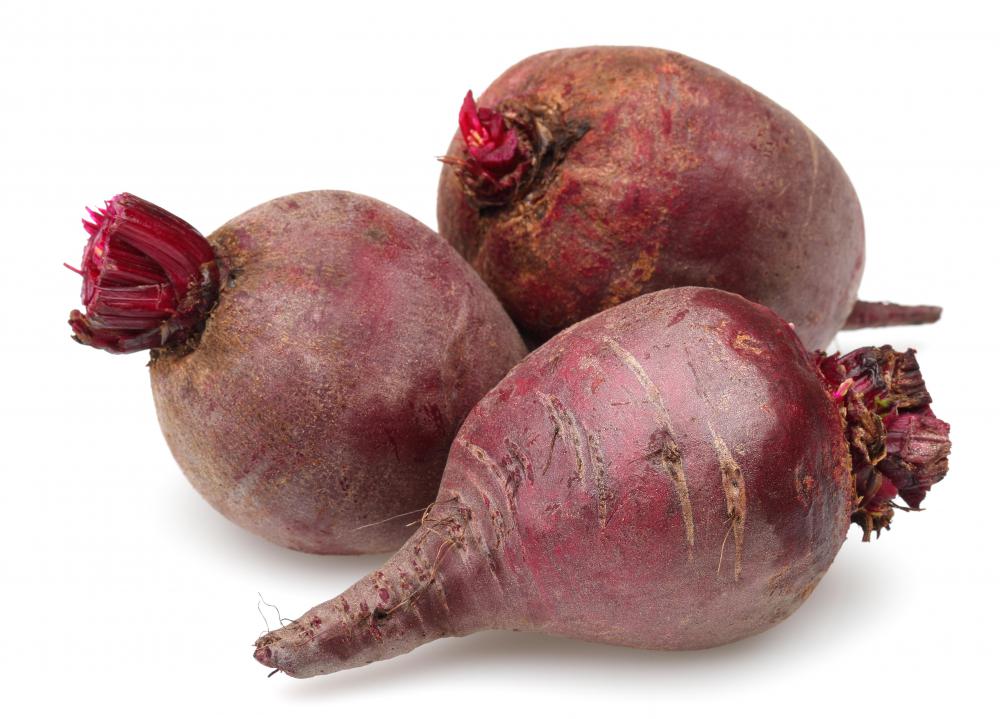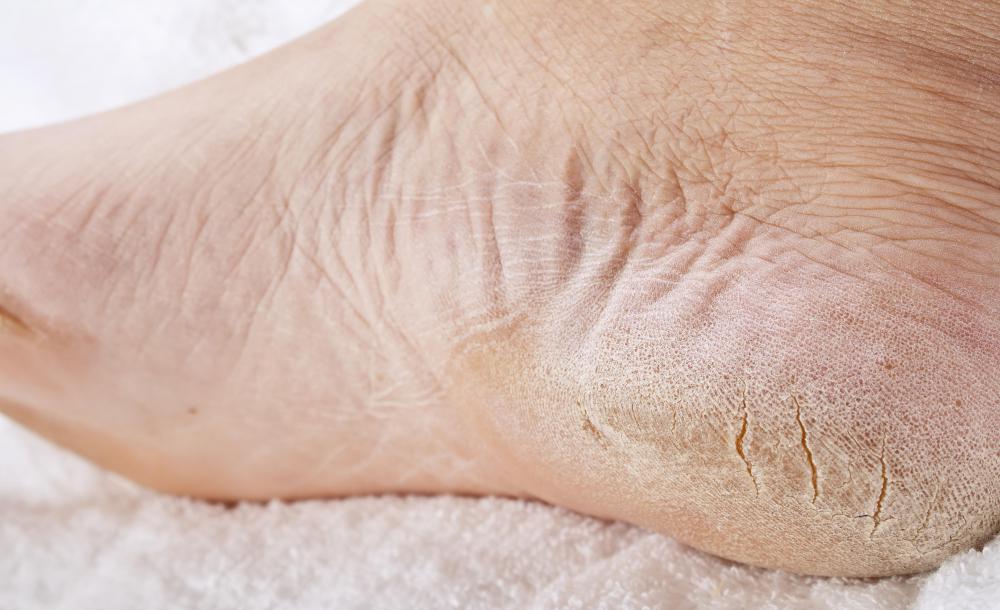At WiseGEEK, we're committed to delivering accurate, trustworthy information. Our expert-authored content is rigorously fact-checked and sourced from credible authorities. Discover how we uphold the highest standards in providing you with reliable knowledge.
What Are the Benefits of Radish Juice?
Radishes are a popular root vegetable that originates from China and comes in a variety of types such as the daikon, black or red radish. Their juice has been used for thousands of years for its apparent medicinal benefits. Some benefits include reducing cholesterol, preventing certain infections, relieving constipation, and improving skin. Although as of 2011 some research does confirm some health benefits of radish juice, it is limited and still considered inconclusive.
The nutritional value of radish juice is a point of interest for many people. Radishes typically contain 25 milligrams of calcium and 233 milligrams of potassium, but most impressive is the amount of the antioxidant vitamin C in radishes. Approximately 22.8 milligrams of vitamin C are found in a radish root, with more in the radish leaf. A variety of the B vitamins are also found in radishes including folic acid. Other beneficial components include phosphorus, potassium and zinc.

As of 2011, research indicates that drinking radish juice may lower lipid levels in the body and therefore lower cholesterol, but the affect it has on lipid metabolism is still unknown. It is also believed that this juice may help prevent and possibly help cure certain infections. As it is a diuretic and natural detoxifier, it is believed it may help with kidney and urinary infections. Enzymes found in certain radishes may also kill bacterial fungus in the body, such as candida albicans. These enzymes may also be able to regulate the bile in the gallbladder.

The high water and roughage content of radishes may also make it beneficial for relieving constipation. This may in turn help with piles. It is further believed that it may aid in soothing the digestive tract. Radish juice from certain types of radish may also help with jaundice by lowering bilirubin levels. The zinc, phosphorus, vitamin B-complexes, vitamin C and water help to keep the skin moisturized and may help with cracking, eczema, dryness and rashes.

Normally, people recommend mixing radish juice with other vegetable juices as the taste may be very strong on its own. It is popularly mixed with carrots, cucumbers, green peppers, ginger or even apples. While there are several methods for juicing radishes, it is usually recommended to use a commercial juicer. Radish juice should be used only as a complementary supplement and not a replacement for traditional medicine. It is also recommended to seek advice from a healthcare professional before drinking radish juice for any medicinal purposes.
AS FEATURED ON:
AS FEATURED ON:



















Discussion Comments
How long should I take radish juice because am having kidney diseases and BP issue?
I have tried black radish juice for my hair. It stopped falling after I have used the first time. Just shred a radish, squeeze the juice out and put on your hair, cover with plastic for 20-30 minutes and then wash it. It is magic.
This might sound odd to some but radish juice is also good for hair. You can drink it for the vitamins, and you can also make a hair mask or a hair tonic with it.
I did it. I boiled radish in water, and mixed the water with an egg yolk and used it as a hair mask before showering. It made my hair so shiny and it felt stronger too.
I believe if used regularly, it reduces hair fall and helps hair grow longer. But the important part is to use black radish.
@SarahGen-- I haven't tried it personally, but yes, I've also heard from several different people that radishes and radish juice helps with gallstones.
But I don't think it works every single time. My husband had gallstone problems before and at that time I had learned that gallstones are composed of different things in different proportions. So there is no guarantee that radish juice will dissolve your gallstones, but it's definitely worth a shot. You have nothing to lose by trying radish juice for it in my view.
Does radish juice help with gallstones for real?
How much radish juice do I need to consume per day and for how many days to see the benefits?
Post your comments